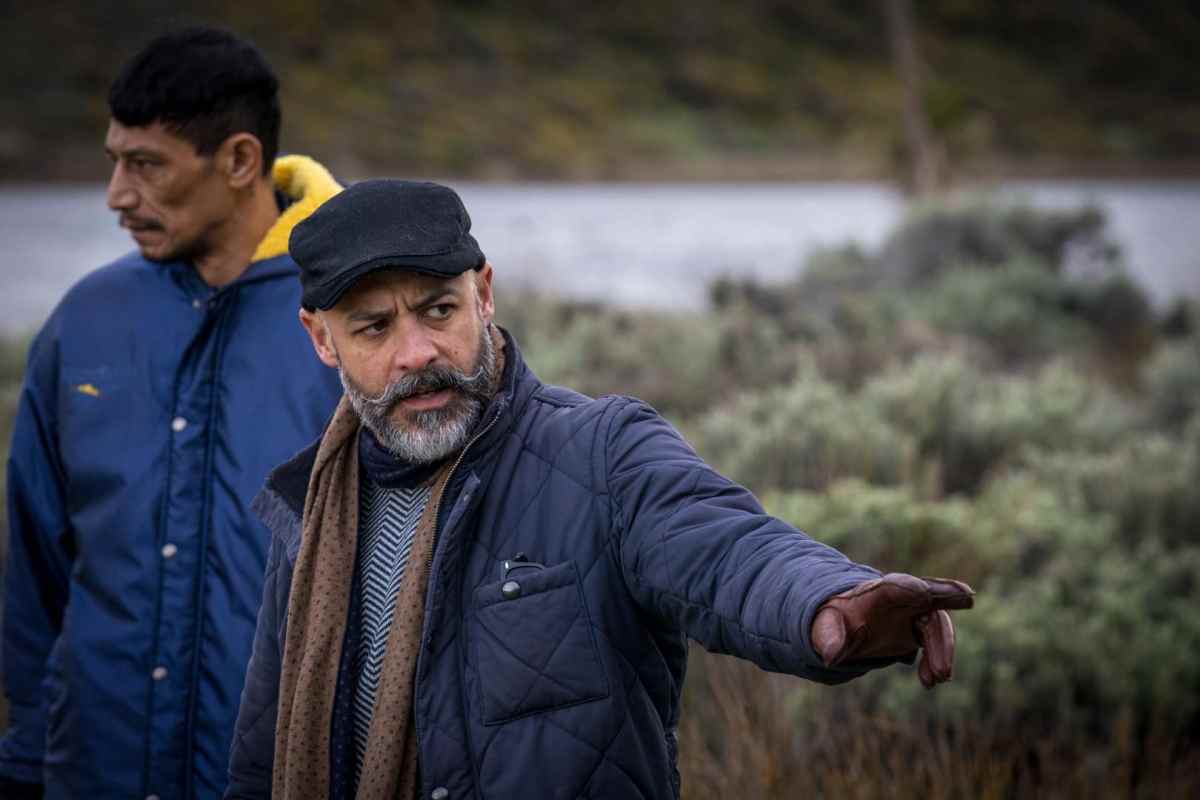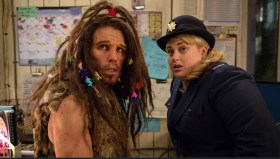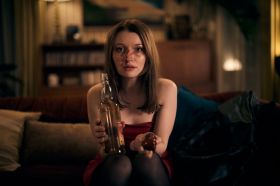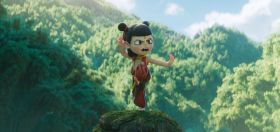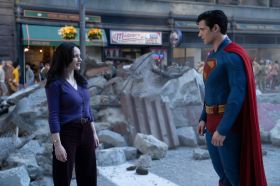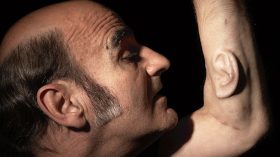When New Zealand thriller Coming Home in the Dark premiered in the ‘Midnight’ strand at Sundance earlier this year, The Hollywood Reporter said it was ‘…a rivetingly nasty ride and an assured debut from a promising new director’. That director is James Ashcroft, who comes from an extensive acting and theatre background, including a long stint as artistic director of New Zealand’s Māori Theatre Company, Taki Rua Productions.
Together with his co-writer Eli Kent, Ashcroft set out strategically to make the leap to his first low budget feature film via a string of shorts that were undertaken to learn the craft and connect to screen collaborators. In 2018 Ashcroft was one of 12 directors/producers selected to attend the Torino Film Festival’s inaugural Up & Coming Programme, and he was development producer on the NZFC funded feature film This Town, released in 2020.
Shot in 20 days for a lean budget of NZ $1.4 million, Coming Home in the Dark is a masterclass in economy and in making the most of tension, performance and dialogue.
‘Nasty’ is one word to describe Coming Home in the Dark, a taut can’t-look-away thriller about a picturesque family hiking trip that goes wrong when two gun-wielding sociopaths come across their picnic. Adapted from a well-known short story by NZ author Owen Marshall, the film expands from that story’s violent starting point, and ends up with two terrorised hostages (Erik Thompson and Miriama McDowell) driving through the night in a car with their captors (played by a menacing Daniel Gillies and mostly silent Matthias Luafutu).
As Ashcroft tells ScreenHub on the phone from his locked-down home in Mt Maunganui on New Zealand’s north island (his three kids upstairs watching a Disney film – ‘the farthest thing from my work’), Coming Home in the Dark was never intended as a purely exploitative genre piece.
‘I wanted it to be an entertaining ride, a gut-punch of a ride, and enjoyable from a genre perspective,’ Ashcroft explains, ‘but one that also allows you to unpack some tricky material about New Zealand and some of the historical failings we need to face.’
Screenhub: Have you been able to see the film with a home audience yet?
James Ashcroft: It was completed around February 2020 which feels like a decade ago, and I was finally able to see it with a live audience two weeks ago at the NZ premiere in Wellington, which was very rewarding and gave me a sense of closure. I’m thrilled with the way it’s landed with people both here and overseas. It’s been a wild ride since Sundance. Now I feel like I can actually move on to other projects.
You have a background in theatre but did you always want to make films?
Yes, films have always been the primary passion in my life right from when I was a small child. I worked in video stores between the ages of 13 to 21. Initially, I took an acting route, and then through theatre, which I was heavily involved with. It wasn’t about 2013 that I decided to… I was running a National Theatre Company at the time and I felt like I’d reached my ceiling in terms of what I wanted to do and achieve in theatre. I felt it was time to commit and jump in the deep end, and work towards developing a slate of scripts and getting that first cab off the rails, which just happened to be Coming Home in the Dark.
You started out by making a number of short films?
Yes, I brokered a deal with a couple of the universities. The Victoria University’s music department and the National Drama School’s acting department, to do a number of short films with them. I sort of built that to give myself a film school. I don’t mind saying that those eight films are probably some of the worst short films that have ever been made! That’s not to the detriment of either of those schools, either. What we were aiming for was to try and build a program together as well as build some collateral for myself. I was able to develop some working relationships with some industry practitioners that I would then go on to work with on Coming Home in the Dark.
So, Matt Henley, the cinematographer, who did an amazing job on this, he shot all eight short films with me. Coming Home in the Dark was his first feature. And of all the people on set, Matt and I probably said the least to each other, because we already had that working relationship. I was able to do that with a number of the Heads of Department and crew as well. There’s a good reason why people work together again and again, and this was a real testament to that fact.
You’ve optioned and adapted a number of short stories. What drove you to go down the route of adapting existing properties rather than writing your own?
My biggest influence other than film would be literature. I like books, I like stories. I suppose I’m always reading with a certain eye towards the potential of it translating to a film or a series. There are so many great stories and books out there that have fallen through the cracks, for whatever reason, and remain sort of undiscovered. Coming Home in the Dark was one of those pieces which, as soon as I read it I knew straight away it was a start of something, in terms of translation for a piece of cinema.
Read: All the Australian films featured at TIFF
I’ve learned to write in order to facilitate my desire to direct. I have ideas of my own, which have also been developed a little bit further, but when you fall in love with a story, that’s the thing that really drives me. Now that I have an agent in the States, I am now seeing a lot more original material, original scripts, and some of those scripts are fantastic, really high caliber. But in the back of my mind everything is always competing with the great novels, or the great stories, that resonate with me personally.
What did you relate to in writer Owen Marshall’s work?
He’s one of our greats in New Zealand and it’s preposterous that this is the first of his works to be adapted. [Co-writer] Eli Kent and I have optioned another of his works. He writes in a very cinematic way and has such a keen eye in terms of setting, location, tone, especially character, and his observations of life.
The short story only provides the first 20 minutes of the film’s plot. How did you develop the rest?
The short story’s main theme is that violence can find you even in the most beautiful and isolated places. I wanted to use the story to speak about something contemporary. I had recently produced a TV documentary on a very abusive boys’ home here in New Zealand, and I met a lot of former residents and former staff, some of whom were really great humanitarians and great educators, and some whom had been accused of some very very unsavory things. There was a great greyness there, both for the former residents in terms of how their lives have turned out. But also, these housemasters as well, because even though they have committed horrible acts of abuse on children, these are also often good husbands, fathers, grandfathers now. There’s a duality there, a lot of questions. That grey space is something I’m drawn to and once we brought those aspects into play with the short story, they started to mirror each other in quite a profound way.
The horrors of those kind of state run institutions existed everywhere, including Australia and Britain. There’s a universality to this.
Yeah, absolutely. And in Canada recently with the Indigenous schools there, the absolute horror and failure of those places with mass graves being being unearthed.
Can you talk about including Māori characters in your adaptation of the story?
I think it’s important to point out that Matthias Luafufu is actually Samoan. And Miriama McDowell who plays the mother is Māori. She was the best person to play the role, and she’s strong, middle class, heroic and we don’t get to see enough Māori women in such roles.
There’s no question that Māori are hugely affected by state-run institutions; that the numbers, especially from the early 70s onwards, were predominantly Māori. You can definitely argue they were a form of colonisation. I didn’t set out to make this film with a racial agenda, I wanted to explore characters. And when I think about the schools and the institutes and the harm that they’ve caused, I’m looking at it from a perspective of what it’s done to children. And I don’t prioritise or group children as victims in any other way. I think it’s relevant to all children who went through there and were failed. There were huge numbers of Māori, and large numbers of Pakeha (white), as well as children who would now have been classed as having ADHD or forms of psychological illness.
With Monster distributing your film in Australia and NZ, and having premiered in Midnight at Sundance, there might be some people expecting this film to be horror, but you don’t classify it like that.
No, no, not at all. That Midnight label does kind of have that connotation to it, but actually, if you look at the Midnight program, it’s really diverse. I don’t think this is a horror film. This is a psychological thriller, though I do think it’s horrific.
What do you see as the difference between horror and psychological thriller?
Well, horror, as a genre, can work more in the overt space of gore and viscera, or of supernatural horror, as opposed to psychological thrillers, where there’s not just a physical threat to the characters, but their very souls, their sanity is in danger, and it’s about the mystery and revelation of who they really are.
At what point did the New Zealand Film Commission come into supporting the project?
Eli and I wrote the work on spec and applied in terms of what we thought we could get as a film with a first time director. It was it very hard to find a market partner. Monster came on board and have been very supportive. They saw this as something different to some of the stuff they’ve done previously. Once we had the script together and a plan and a package, the NZF came on with a top range of what they could possibly offer, and we felt, by the skin of our teeth and calling in a few favours, we would be able to execute it for that amount.
The budget was (NZ) $1.4 million, which is not a lot to play with right?
No! A lot of cold nights and good humor. We had a great cast. Erik Thompson obviously, who is probably used to filming in more tropical conditions! But the cold breath you see on screen is real, and the discomfort is real and in a way that adds a nice layer of realism.
What are the key elements to making such a tight budget work?
Well I wanted to lean into my strength, which is that I’m an actor’s director. So you could actually remove a lot of the trappings of the exterior scenes and it’s a bit of a chamber piece really. It’s four people in the car. It was actor-focused, it was location light. It was dialogue driven. It was all around tension.
In terms of how we shot the car interiors, it was a very small studio, or actually just a room with black curtains. It was all about how do we keep the space alive and the sense of being in a car? So we set up fans that were connected to hoses so that when the windows came down, you would get the effect of wind coming through. We treated the car as a pressure cooker more than anything. It was all about pressurising these scenes and these characters, which informed the way we shot it as well. How do we lean into the constraints more than anything? I come from a theatre background so I’m used to having no money and trying to get an audience to engage with their imaginations.
We used a lot of goodwill. If someone asked me how I would make it for double the budget, I would say the money should go to the crew. We had the best available in New Zealand and we were able to do it because they were behind the vision of the piece.
Coming Home in the Dark was part of the Melbourne International Film Festival’s 2021 lineup. It releases in select Australian cinemas from 9 September 2021.
